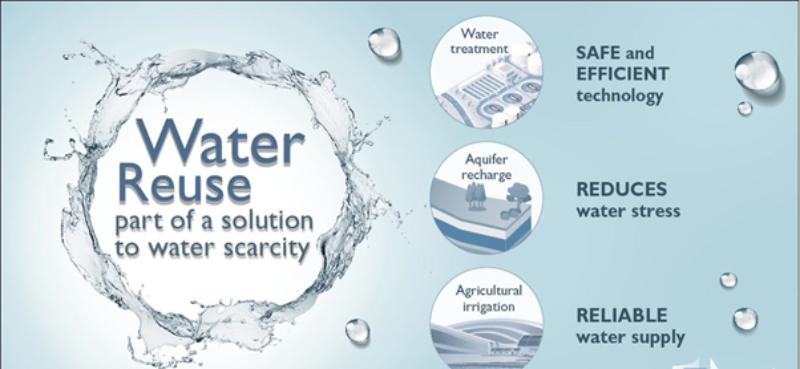
Water reuse is no longer a choice. It’s a necessity. It is indeed becoming a crucial necessity rather than a choice in many regions around the world. With growing population, urbanization, and climate change impacting water availability, traditional water sources are under increasing stress. As a result, water reuse is being recognized as a sustainable solution to meet water demands and ensure long-term water security.
The key reasons why water reuse is no longer a choice but a necessity:
Water Scarcity: Many regions are facing severe to extreme water scarcity due to factors such as droughts, overexploitation of freshwater sources, and changing weather patterns. Reusing water helps alleviate the pressure on freshwater supplies by providing an alternative source of water. India is grappling with a historical challenge of water scarcity with over 40% population is suffering from acute drinking water shortage.
Population Growth and Urbanization: The world's population is increasing rapidly, leading to more significant water demands for domestic, industrial, and agricultural purposes. As cities expand, they face challenges in supplying adequate water to meet the needs of their residents. Water reuse can help augment water supplies and reduce reliance on distant water sources. India is experiencing rapid urbanization, and its urban population is expected to continue growing significantly in the coming decades. By 2050, it is projected that more than half of India's population, which is estimated to reach 1.7 billion by that time, will be living in urban areas. This urbanization trend presents both opportunities and challenges for the country.
Climate Change Impacts: Climate change intensifies water stress by altering precipitation patterns, causing more frequent and severe droughts, and affecting the availability of water resources. Water reuse offers a climate-resilient approach to secure water supply by creating a local, decentralized water source that is less susceptible to climate variations. The regular flooding of Indian cities is a significant challenge that arises due to climate change patterns that causes significant damage to infrastructure, disrupt daily life, and pose risks to public health and safety.
Environmental Conservation: Water reuse reduces the strain on natural ecosystems and water bodies. By reusing water, we minimize the extraction of freshwater from rivers, lakes, and groundwater, thereby preserving the ecological balance and supporting aquatic habitats. It will also tackle the issue of the large volume of wastewater being discharged into water bodies in India.
Economic Benefits: Implementing water reuse systems can bring economic advantages. It can reduce water treatment costs; minimize the need for costly infrastructure projects to tap into new water sources, and provide a reliable water supply for industries and agriculture, which contribute to local economies.
Regulatory and Policy Support: Governments and regulatory bodies are increasingly recognizing the importance of water reuse and implementing policies to encourage its adoption. This includes offering incentives, providing guidelines and standards for water reuse projects, and integrating water reuse into long-term water management plans.
Recycled water also known as reclaimed water or treated wastewater has various applications across different sectors. Here are some common uses of recycled water could be:
As water scarcity continues to intensify, communities and industries will need to embrace water reuse as an integral part of sustainable water management. By adopting innovative technologies, implementing appropriate regulations, and raising awareness about the benefits of water reuse, we can ensure a more resilient and secure water future for generations to come.